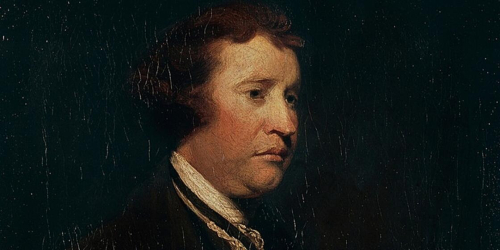It’s no secret that the modern American conservative movement is divided today. Issues like the role of government, the place of the nation-state, and the extent to which free markets should prevail in economic life have become major points of fracture across the right that seem unlikely to be resolved soon.
In times of such division, one way in which political movements seek to achieve clarity about what they are and why they exist is by returning to their primary sources of inspiration. Sometimes that involves rereading important texts. On other occasions, the focus turns to how particular individuals in the past thought about their world and the issues they confronted.
These were the references in my mind as I made my way through a short book, edited by the George Mason economics professor Daniel B. Klein and the Thomas L. Rhodes Fellow at the National Review Institute, Dominic Pino. In Edmund Burke and the Perennial Battle, 1789-1797, they have brought together extracts from some of the more important later writings penned by the man widely regarded as a major inspiration for modern Anglo-American conservatism. These texts, Klein and Pino believe, illustrate that Edmund Burke was someone who believed that “he had a duty to the present and a duty to the future . . . a duty to liberty in policy and a duty to stability in polity.” A modern American conservative movement that embodied these axioms would surely be one less wracked by the internecine conflicts that bedevil it today.
Hard Times
The period covered by this collection not only marks the last eight years of Burke’s life but also encompasses a tumultuous decade in British and European history. The French Revolution sparked immense social and political change throughout much of Europe as well as widespread violence inside France and war abroad. Having recovered from its defeat in the War of American Independence, Britain found itself drawn back into military conflict with its old enemy, albeit one now pushing a specific ideological agenda. With two very short intervals, this war would not end until 1815.
For Burke, the 1790s were exceptionally difficult years. Views of the French Revolution forged new alliances in British politics but also broke long-standing friendships. Burke’s dim view of the French Revolution meant that he lined up more often with Prime Minister William Pitt (about whom he had expressed reservations in the past) and found himself at odds with his old friend Charles Edward Fox. This split with Fox mirrored the new division between self-styled “Old Whigs” like Burke and the “New Whig” enthusiasts about what was happening across the Channel.
These stresses form much of the background to Klein and Pino’s edited collection of extracts from Burke’s writings in these periods. Not surprisingly, selections from Burke’s Reflections on the Revolution in France comprise the largest set of writings reproduced in this book. But extracts from eight lesser-known writings (Letters on a Regicide Peace, An Appeal from the New to the Old Whigs, “Letter to William Elliot,” to name a few) also show Burke working through his long-standing commitments to liberty as well as the importance of tradition in an atmosphere quite different from that of pre-revolutionary Europe.
The French Revolution purported to be all about liberty. Yet this was difficult to square with the social and political chaos that erupted throughout France in the Revolution’s wake and the eventual use of state terror against large segments of the population.









